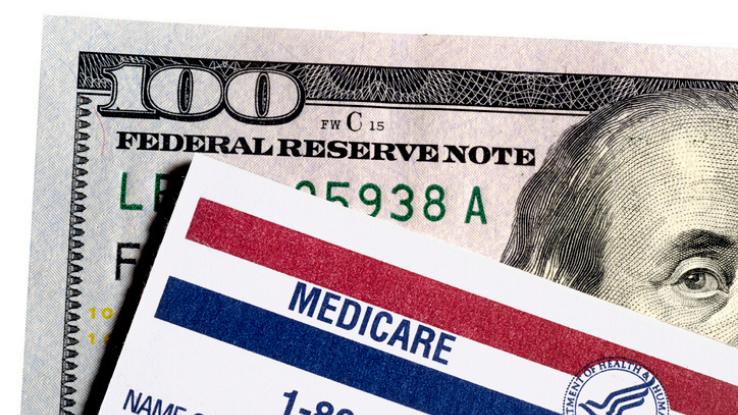
As we get older, the likelihood that we will need medical care starts to increase. For Americans, Medicare has been the trusted insurance solution for seniors for decades. However, with its multiple “parts” and varying eligibility requirements, Medicare insurance isn’t always the easiest coverage to understand.
In fact, just determining when you qualify for Medicare presents the first challenge. The answer isn’t as simple as memorizing one set age. Whether you’re wondering if you can get Medicare upon early retirement at age 62 or if you’re simply ready to start planning for the future, this guide will make it easy to understand what you need to know about Medicare eligibility.
Medicare Eligibility Age
For most Americans, age is the most important eligibility factor for Medicare. In general, American citizens and permanent residents qualify for Medicare at age 65. If you are already receiving social security benefits when you qualify at age 65, then your enrollment in Medicare Part A and Part B — the core Medicare components that cover hospitalization and regular medical care — is automatically initiated by the Social Security Administration.
If you are not yet receiving social security benefits in the four months prior to turning 65, then you need to enroll in Medicare Part A and Part B yourself. You have a seven-month time window for completing your enrollment during the year you turn 65. Your enrollment period runs from three months prior to your birth month until three months after your birth month.
It’s important to note that the cost of coverage won’t necessarily be the same for everyone who qualifies at age 65. The specific cost of the coverage you qualify for will vary, depending on your (or your spouse’s) status as a taxpayer. If you never paid Medicare taxes, for example, you won’t qualify for free Medicare Part A hospitalization coverage and will have to pay a premium. Most taxpayers receive Part A coverage without paying a premium. Deductibles and coinsurance costs are the same for those who pay premiums and those who don’t.
When signing up, you can also opt for Medicare Advantage instead of Original Medicare or choose Original Medicare with supplemental coverage, such as a Medigap supplement and Part D prescription drug coverage. These options would change and expand the coverage provided by your Medicare insurance.
Medicare Eligibility Requirements
Age is a key eligibility factor for Medicare, but it’s not the only way to qualify for coverage. Some taxpayers plan for retirement at age 62 or even younger, but does that mean they have to wait until age 65 to receive Medicare coverage? Maybe, but it depends on their situation. People who are not yet 65 can qualify under certain circumstances. For example, those with certain disabilities and diseases, such as end-stage renal failure and amyotrophic lateral sclerosis (ALS), can usually qualify for Medicare at any age.
Additionally, those who receive government disability payments, either through the Social Security Administration or another government source like the Railroad Retirement Board, may also qualify for early Medicare coverage. Recipients typically have to meet certain time minimums, such as 24 months of disability payments, before they become eligible.
Premium-Free Medicare Part A Eligibility
Medicare Part A primarily covers hospitalization, and it’s available to everyone who qualifies for Medicare. In most cases, individuals who are former taxpayers will receive premium-free Part A coverage, which simply means they won’t have to pay premiums for this part of their insurance plan. To qualify for premium-free Part A Medicare, you or your spouse must have paid Medicare taxes for at least 40 quarters throughout your years of employment.
Medicare Part B Eligibility
Medicare Part B covers doctors’ visits, medical tests, preventive services, outpatient care, mental health services and more. Everyone who has Part B coverage must pay a premium, which is deducted from social security payments if you already receive those payments. Enrollment in Medicare Part B is voluntary, but there are some important things to consider before rejecting it, even if you currently have other insurance.
If you decide to enroll later, such as when you no longer have personal insurance coverage through an employer, then you will have to pay a late enrollment penalty for as long as you have the coverage. Additionally, if you don’t qualify for premium-free Medicare Part A but want that coverage, you will have to enroll in Medicare Part B to qualify to purchase Part A coverage.
Medicare Part D Eligibility
Medicare Part D covers prescription drugs that aren’t generally included on Medicare Part A and Part B plans. These coverage plans provide an essential benefit for many seniors, but they usually have specific rules related to enrollment deadlines and stiff penalties if you enroll late. You may be exempt from this penalty if you had existing drug coverage at the time you enrolled in Medicare but no longer have it. Everyone with Medicare can access the prescription drug coverage provided by Medicare Part D plans.
Medicare Advantage Eligibility
Medicare Advantage plans offer a bundled approach to Medicare insurance but still provide all the coverages included in Medicare Part A and Part B. Additionally, Medicare Part D prescription drug coverage is usually included in most Medicare Advantage plans, although you should verify all the details and focus on finding the plan that offers the most benefits for your personal situation. Vision, hearing, dental and wellness care are often included in these plans as well. Anyone who qualifies for Original Medicare qualifies for Medicare Advantage.
Resource Links:
https://www.medicare.gov/sign-up-change-plans/get-started-with-medicare
https://www.medicare.gov/your-medicare-costs/medicare-costs-at-a-glance
https://www.medicare.gov/your-medicare-costs/part-a-costs
https://www.medicare.gov/your-medicare-costs/part-b-costs
https://www.medicare.gov/sign-up-change-plans/how-do-i-get-parts-a-b
https://www.medicare.gov/sign-up-change-plans/how-do-i-get-parts-a-b/part-a-part-b-sign-up-periods
https://www.medicare.gov/drug-coverage-part-d/how-to-get-prescription-drug-coverage





